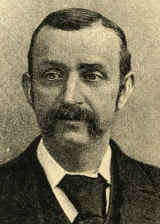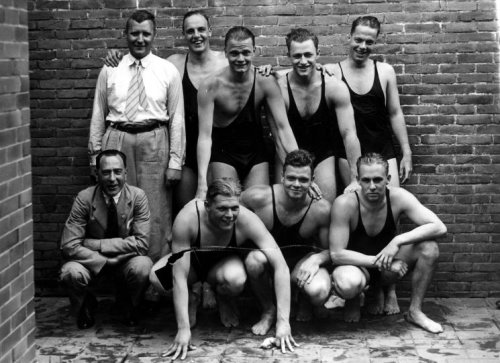|
Alberto Batignani
Alberto Batignani (born 30 September 1912, date of death unknown) was a Uruguayan water polo player. He competed in the men's tournament at the 1936 Summer Olympics The 1936 Summer Olympics (), officially the Games of the XI Olympiad () and officially branded as Berlin 1936, were an international multi-sport event held from 1 to 16 August 1936 in Berlin, then capital of Nazi Germany. Berlin won the bid to .... He was also a breaststroke swimmer. References External links* 1912 births Year of death missing Uruguayan male water polo players Olympic water polo players for Uruguay Water polo players at the 1936 Summer Olympics Water polo players from Montevideo 20th-century Uruguayan sportsmen {{Uruguay-waterpolo-bio-stub ... [...More Info...] [...Related Items...] OR: [Wikipedia] [Google] [Baidu] |
Water Polo
Water polo is a competitive sport, competitive team sport played in water between two teams of seven players each. The game consists of four quarters in which the teams attempt to score goals by throwing the water polo ball, ball into the opposing team's goal (sport), goal. The team with more goals at the end of the game wins the match. Each team is made up of six field players and one Goalkeeper (water polo), goalkeeper. Excluding the goalkeeper, players participate in both offensive and defensive roles. It is typically played in an all-deep swimming pool, pool where players cannot touch the bottom. A game consists mainly of the players swimming to move about the pool, treading water (mainly using the eggbeater kick), passing the ball, and shooting at the goal. Teamwork, tactical thinking and awareness are also highly important aspects. Water polo is a highly physical and demanding sport and has frequently been cited as one of the most difficult to play. Special equipment for ... [...More Info...] [...Related Items...] OR: [Wikipedia] [Google] [Baidu] |
Montevideo
Montevideo (, ; ) is the capital city, capital and List of cities in Uruguay, largest city of Uruguay. According to the 2023 census, the city proper has a population of 1,302,954 (about 37.2% of the country's total population) in an area of . Montevideo is situated on the southern coast of the country, on the northeastern bank of the Río de la Plata. A Portuguese garrison was established in the place where today is the city of Montevideo in November 1723. The Portuguese garrison was expelled in February 1724 by a Spanish soldier, Bruno Mauricio de Zabala, as a strategic move amidst the Spanish people, Spanish-Portuguese people, Portuguese dispute over the Río de la Plata Basin, platine region. There is no official document establishing the foundation of the city, but the "Diario" of Bruno Mauricio de Zabala officially mentions the date of 24 December 1726 as the foundation, corroborated by presential witnesses. The complete independence from Buenos Aires as a real city was not ... [...More Info...] [...Related Items...] OR: [Wikipedia] [Google] [Baidu] |
Water Polo
Water polo is a competitive sport, competitive team sport played in water between two teams of seven players each. The game consists of four quarters in which the teams attempt to score goals by throwing the water polo ball, ball into the opposing team's goal (sport), goal. The team with more goals at the end of the game wins the match. Each team is made up of six field players and one Goalkeeper (water polo), goalkeeper. Excluding the goalkeeper, players participate in both offensive and defensive roles. It is typically played in an all-deep swimming pool, pool where players cannot touch the bottom. A game consists mainly of the players swimming to move about the pool, treading water (mainly using the eggbeater kick), passing the ball, and shooting at the goal. Teamwork, tactical thinking and awareness are also highly important aspects. Water polo is a highly physical and demanding sport and has frequently been cited as one of the most difficult to play. Special equipment for ... [...More Info...] [...Related Items...] OR: [Wikipedia] [Google] [Baidu] |
Water Polo At The 1936 Summer Olympics
Final results for the water polo tournament at the 1936 Summer Olympics: Medal summary Results Elimination rounds In the first round each team in a group played each other team in the same group. The placings were determined on points. If the points were equal, then the better goal average decided. The first two teams of each group were qualified for the semi-finals, while the third and fourth placed team was eliminated. Group 1 Group 2 Group 3 Group 4 Semi-finals As in the elimination round each team in a group played each other team in the same group unless they had met in the previous round. In this case the previous result stood and was carried forward to this group. So in each group only four matches had to be played. The placings were determined on points. If the points were equal, then the better goal average decided. The first two teams of each group were qualified for the final round, while the third and fourth placed team were eliminated and took part i ... [...More Info...] [...Related Items...] OR: [Wikipedia] [Google] [Baidu] |
1936 Summer Olympics
The 1936 Summer Olympics (), officially the Games of the XI Olympiad () and officially branded as Berlin 1936, were an international multi-sport event held from 1 to 16 August 1936 in Berlin, then capital of Nazi Germany. Berlin won the bid to host the Games over Barcelona on the 29th IOC Session on 26 April 1931. The 1936 Games marked the second and most recent time the International Olympic Committee gathered to vote in a city bidding to host those Games. Later rule modifications forbade cities hosting the bid vote from being awarded the games. To outdo the 1932 Summer Olympics, 1932 Los Angeles Games, Adolf Hitler had Olympiastadion (Berlin), a new 100,000-seat track and field stadium built, as well as six gymnasiums and other smaller arenas. The Games were the first to be Fernsehsender Paul Nipkow, televised, with radio broadcasts reaching 41 countries.Rader, Benjamin G. "American Sports: From the Age of Folk Games to the Age of Televised Sports", 5th ed. Filmmaker Leni Ri ... [...More Info...] [...Related Items...] OR: [Wikipedia] [Google] [Baidu] |
1912 Births
This year is notable for Sinking of the Titanic, the sinking of the ''Titanic'', which occurred on April 15. In Albania, this leap year runs with only 353 days as the country achieved switching from the Julian to Gregorian Calendar by skipping 13 days. Friday, 30 November ''(Julian Calendar)'' immediately turned Saturday, 14 December 1912 ''(in the Gregorian Calendar)''. Events January * January 1 – The Republic of China (1912–49), Republic of China is established. * January 5 – The Prague Conference (6th All-Russian Conference of the Russian Social Democratic Labour Party) opens. * January 6 ** German Geophysics, geophysicist Alfred Wegener first presents his theory of continental drift. ** New Mexico becomes the 47th U.S. state. * January 8 – The African National Congress is founded as the South African Native National Congress, at the Waaihoek Wesleyan Church in Bloemfontein, to promote improved rights for Black people, black South Africans, with Joh ... [...More Info...] [...Related Items...] OR: [Wikipedia] [Google] [Baidu] |
Year Of Death Missing
A year is a unit of time based on how long it takes the Earth to orbit the Sun. In scientific use, the tropical year (approximately 365 solar days, 5 hours, 48 minutes, 45 seconds) and the sidereal year (about 20 minutes longer) are more exact. The modern calendar year, as reckoned according to the Gregorian calendar, approximates the tropical year by using a system of leap years. The term 'year' is also used to indicate other periods of roughly similar duration, such as the lunar year (a roughly 354-day cycle of twelve of the Moon's phasessee lunar calendar), as well as periods loosely associated with the calendar or astronomical year, such as the seasonal year, the fiscal year, the academic year, etc. Due to the Earth's axial tilt, the course of a year sees the passing of the seasons, marked by changes in weather, the hours of daylight, and, consequently, vegetation and soil fertility. In temperate and subpolar regions around the planet, four seasons are ... [...More Info...] [...Related Items...] OR: [Wikipedia] [Google] [Baidu] |
Uruguayan Male Water Polo Players
Uruguayans () are people identified with the country of Uruguay, through citizenship or descent. Uruguay is home to people of different ethnic origins. As a result, many Uruguayans do not equate their nationality with ethnicity, but with citizenship and their allegiance to Uruguay. Colloquially, primarily among other Spanish-speaking Latin American nations, Uruguayans are also referred to as "'' orientals s in Easterners'" (). Uruguay is, along with much of the Americas, a melting pot of different peoples, with the difference that it has traditionally maintained a model that promotes cultural assimilation, hence the different cultures have been absorbed by the mainstream. Uruguay has one of the most homogeneous populations in South America; the most common ethnic backgrounds by far being those from Spain, Italy, Germany and France i.e. Spanish Uruguayans, Italian Uruguayans, German Uruguayans, French Uruguayans and Polish Uruguayans. Immigration waves Most Uruguayans desce ... [...More Info...] [...Related Items...] OR: [Wikipedia] [Google] [Baidu] |





